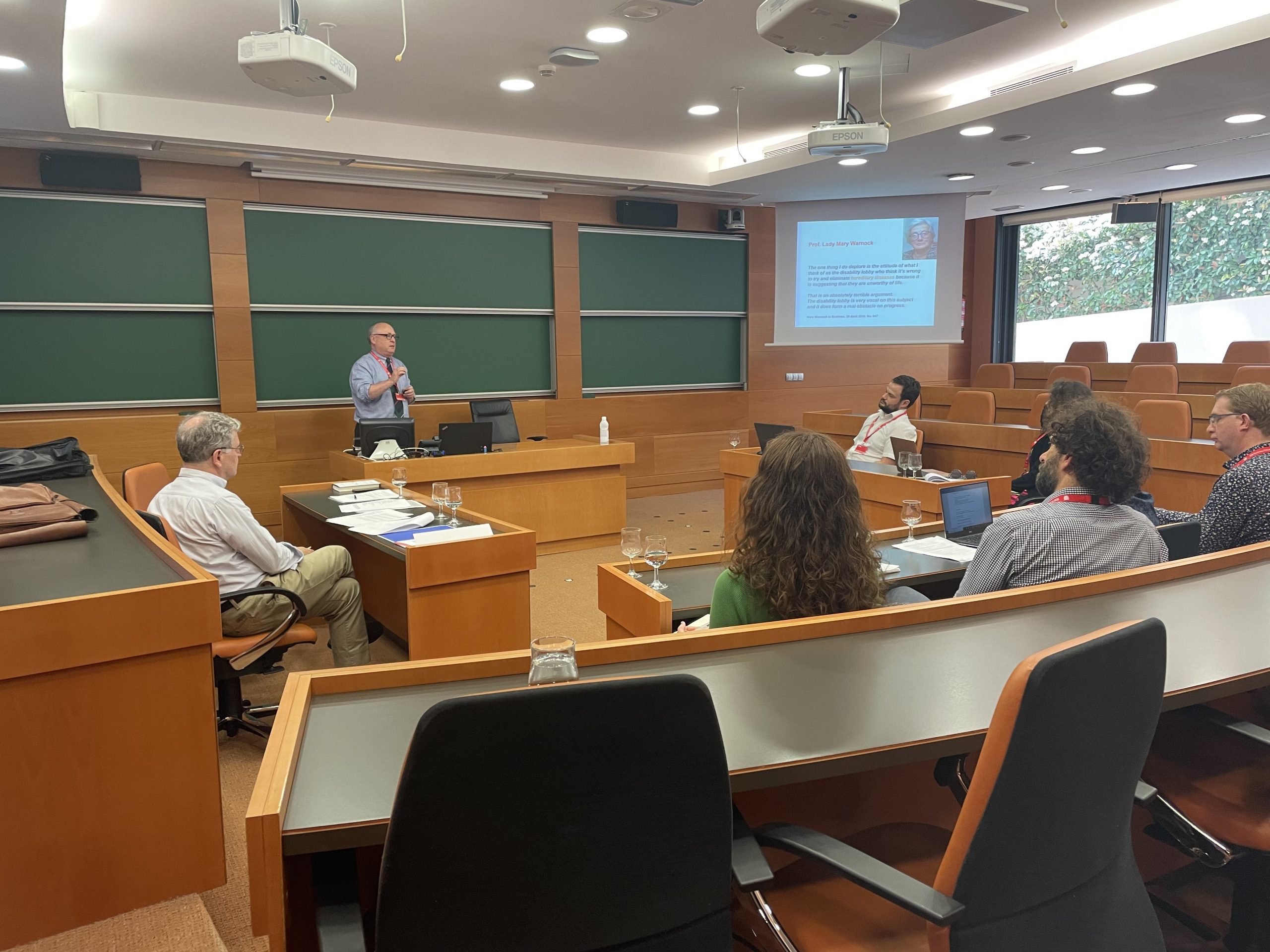An interdisciplinary group of scholars with backgrounds in Law, Politics, Medicine, Biomedical Sciences, Philosophy, Theology, Sociology and Disability Studies gather for the second phase of debate on Heritable Genome Editing and Equality.
The discussion began in Barcelona in April 2022 in STI’s Heritable Genome Editing and Equality experts meeting, under the academic leadership of Calum MacKellar, research director of the Scottish Council on Human Bioethics (SCHB). The project’s purpose was to examine, study and understand, in a detailed manner, whether it is possible for heritable genetic procedures to be seen as ethical while considering the new eugenic risks. It aimed to frame the consideration of new genome editing technologies and the manner in which they should be assessed while also highlighting possible risks and benefits for society arising from these procedures. Contributors presented and discussed their own views and positions on the ethical aspects of heritable genetic modifications from their field of expertise. From these presentations and resulting debate, a draft list of policy recommendations was drawn up.
A year later, with their presentations polished into draft chapters, the group joins for an international conference (open to the public, both live and remote) hosted by The Centre of Bioethics and Emerging Technologies at St Mary’s University, Twickenham, in partnership with the SCHB. The final policy recommendations are to be agreed upon.
The resulting interdisciplinary book written to a very high standard and presenting the philosophical, theological, ethical and societal issues associated with the consequences of heritable genetic modifications on the equality of human beings should be of interest to academics of many fields, to different faiths and to the general public. The volume will be written in lay language, but without undermining its academic credibility, in order to serve a large and broad readership and have a significant positive impact on society in the preparation of important policy guidelines.
In this way, society as a whole will be positively influenced to consider the different risks and advantages and address the areas that may require further regulation. It will also be useful to civil society, including from a policy perspective, as it begins discussing the relevant challenges that the development of heritable genetic procedures may initiate with respected to eugenic dangers.
As no workshop or specific book on the topic has ever been prepared while considering the new biological developments, this investigation is certain to have a substantial impact in the field, and to be an important milestone and reference for future responsible and balanced discussions.
In this short animation, the Scottish Council on Human Bioethics presents philosophical arguments explaining why heritable genome editing may be at odds with equality in an inclusive society.
